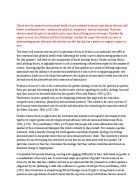There are certain institutions within society that enable socialisation to take place. According to Jureidini, Kenny and Poole (1997, pp168-176), Newman (2000, pp111-121), and McKee (1969, pp98-103) the main institutions are the family, school, and the mass media. Other agents of socialisation include peer groups, religion and the workplace. Each of these institutions contributes to the type of person we become. It is evident that “children are socialised into certain ways of thinking and behaving by their families and the schools they attend”, and also by the media, especially television.
The family is the main agency of socialisation; in fact “in many cultures the primary socialisation agent is the family.” The initial bond that may form between a baby and its primary care giver can be viewed as “the first and most intense part of the socialisation process.” Families can socialise children in many different ways, both intentionally and unintentionally. Generally, in being a part of the family, the child is able to observe the behavior of those around them, and is able to learn right from wrong, and what behavior is considered appropriate for certain situations.
Children also learn how to act by going to school. Education teaches young children to read and write, but more importantly, it teaches them to socialise, and how to behave in certain situations. Musgrave believes that “education is concerned with the transmission of norms and knowledge to those of all ages”, mainly to the younger members of society. During their schooling years, interaction with peers is important, especially in adolescence, and it can help shape an individuals view of the world, and how they see themselves.
The mass media also has a large influence on children during the time where socialisation is most important. The mass media influences children in the form of radio, television, books, tapes, CDs, and newspapers. The most common form of media for children is the television, which can influence a child’s perspective on life both positively and negatively. For example, violent television shows are quite common in Australia (For example ‘Power Rangers’, ‘Ninja Turtles’, and wrestling,), and thus it is not surprising to see children getting into fights at school, as they are clearly influenced by what they see on the television. On the other hand, there are television shows like ‘Play School’, which are important learning sources for young children.
Socialisation is closely linked to culture, and, as McNall suggests “culture, symbolic communication, and socialisation are all bound together.” An important aspect of the socialisation process is learning of one’s culture, which is important in understanding the person you are. Because people are “born into different cultural and social communities, they are socialised into different views of reality.” When people leave a culture, they must be resocialised into a new one. For example, my sister recently went to Japan. Before she went, she was taught how to act in public whilst there, as their culture is different to ours. (For example, in Japan public displays of intimacy are outlawed, and so is blowing your nose in public.) She had to learn these things, and be resocialised so she could fit in with the Japanese culture and way of living.
Socialisation is not a deterministic process. We, as human beings, control our lives, and control our fate. An important aspect of being human is that we always have choices. These choices may not always be favorable, but it is important to remember that they exist, and that it is us that must make these decisions about our lives. We can change our lives, and, as a result may change the structure of society.
Socialisation is important for many reasons. Firstly, “individuals require the presence of other individuals…in order to survive.” Newman goes a step further suggesting that “when people are physically and emotionally cut off from their friends and family, they lose their personalities, and can be influenced…or threatened into doing virtually anything, even injuring others, or giving up their own lives.” Socialisation is also important to give a person knowledge, ability, and motivation. Thus, socialisation is an important part in becoming human, as it influences the people we become, and the paths our lives take.
Newman, DM, 2000. Sociology: Exploring the Architecture of Everyday Life, Pine Forge Press, California.
Newman, DM, 2000. Sociology: Exploring the Architecture of Everyday Life, Pine Forge Press, California. P39
Jureidini, R; Kenny, S & Poole, M (Eds.), 1997. Sociology: Australian Connections, Allen & Unwin, St Leonards.P173
Jureidini, R; Kenny, S & Poole, M (Eds.), 1997. Sociology: Australian Connections, Allen & Unwin, St Leonards. P169
Jureidini, R; Kenny, S & Poole, M (Eds.), 1997. Sociology: Australian Connections, Allen & Unwin, St Leonards. P169
Musgrave, PW, 1987. Socialising Contexts, Allen & Unwin Australia, Sydney. P56
McNall, SG, 1969. The Sociological Experience, Little Brown & Company, Minnesota.. P73
Aspin, LJ, 1992. Focus on Australian Society, Longman Australia, Melbourne. P14.
Jensen, AF, 1971. Sociology: concepts and concerns, Rand McNally & company, Chicago. P48
Newman, DM, 2000. Sociology: Exploring the Architecture of Everyday Life, Pine Forge Press, California. P111







